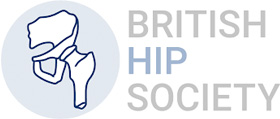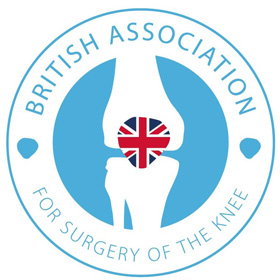Surgery Admin
I will assess you clinically and arrange appropriate investigations before discussing all treatment options with you in detail.
Most conditions may be managed in more than one way, and both surgical and non-surgical options are often available. Advice will be tailored to your individual needs and requirements.
The decision to have surgery is yours to make and one that you will need to consider fully. Please take your time and ask any questions that you may have at any stage of your treatment course. You must be satisfied with the information you have received and when you believe you have been well informed. It is important to understand that your surgeon cannot guarantee that the surgery will meet all your expectations or that the surgery has no risks.
Should any surgery be necessary, a convenient time will be organised based on the nature of the operation the necessary rehabilitation and the recovery time.For patients in a lot of pain, we will find you an early surgery date which means you don’t have to wait in pain for too long. Many patients will need to make arrangements with family or arrange time off work and typically we will find a surgery date, which is 1-3 months away. There is absolutely no pressure to have surgery until you feel ready.
For self-funded patients, you will be provided with a written quotation for your surgical, anaesthetic and hospital fees. If further treatment is needed or you choose other options, extra costs may apply.
If you are insured I will provide a procedure code for your surgery at the admitting hospital. You will need to check with your health insurer that your treatment and hospital stay as well as any other medical costs that you may incur will be covered. Your insurer will give you a preauthorisation code. You may have to pay costs that are not fully covered
Your surgery will be arranged through our office. Angela will contact you and take you through all the steps required. We will organise details to be forwarded to your insurer to make the process as smooth as possible. If you require a preoperative assessment this will be arranged.
Before Surgery
It is likely that you will have booked your operation date some time ahead and it is important that you use the time to strengthen your leg muscles as much as possible. Of special importance are the quadriceps muscles which are at the front of the thighs and support the knees. The stronger they are, the quicker will be your recovery.
As you may be using crutches immediately after your surgery, you should also try to strengthen your upper body muscles so that you will be able to use crutches effectively.
We will make sure your GP is aware of your operation in case you need more medication or develop complications.
It is very important to flag important health issues such as:
· You have diabetes or any allergies.
· You take Warfarin, Aspirin, or any other blood thinning medicines, as you may need to stop taking this prior to your surgery.
· You are having medical or alternative treatments.
· You will not have anyone at home to help you after your discharge from hospital.
If necessary, you will need a thorough health check to ensure you are fit for the procedure. You will be seen by our highly skilled team of specialists and have appropriate medical review. You will have written instructions about medication to take prior to surgery.
You may be sent or called to fill out a full health assessment questionnaire.
For inpatient procedures a pre-assessment clinic will be arranged. Here you will have investigations such as:
· Blood tests
· Screening tests (urine/skin infection)
· ECG tracing from the heart
· Review of your medications / full health assessment.
You may wish to check with your medical insurer about payment for these tests as some insurers do NOT cover the cost and you will be expected to pay for these tests yourself.
Extensive tests are sometimes unnecessary for simple day case procedures and otherwise fit individuals.
You will be given important instructions about what you should and should not take prior to surgery. Please do not hesitate to contact our office if you are unsure about these instructions.
You will be instructed to stop eating & drinking generally 6 hours before surgery. If necessary, sips of clear fluid such as water, black tea or black coffee are usually allowed in small quantities for up to 2 hours before surgery.
For surgical treatments more formal Covid testing is carried out in the preceding days and it is sensible to self-isolate to avoid exposure to infection in the pre-surgery period. Surgery is carried out through a “Green pathway” where all staff and patients are screened, and movement is controlled to minimise risk of infection. You will receive all information specific to your journey to help you understand these procedures.
You will usually be admitted on the day of your operation.
A nurse will show you around your room and explain what will happen during your stay.
You must remove all jewellery, makeup, nail varnish, contact lenses or glasses, dentures, dental plates and hearing aids.
You should lock away any valuables.
You will undergo a check of your blood pressure, pulse and temperature.
A nurse will measure you for support stockings, which are put on just before the operation to minimise the risk of thrombosis (blood clots). You will also receive a patient wristband with your details on.
My team of anaesthetists are highly skilled at anaesthesia for these types of surgery and very experienced in the unique analgesic techniques that will allow you (the patient) to be fully mobile shortly after the surgery, with the pain well under control.
If you are going to have a hip or knee replacement. There are different types of anaesthetic you can have:
· a spinal anaesthetic
· a general anaesthetic.
There are other procedures that you can have in addition, which should reduce your pain and
make the whole experience more comfortable. These are:
· a nerve block
· local anaesthetic infiltration (injections) around the joint and the wound
· occasionally: an epidural.
Enhanced recovery programme
Many hospitals offer an enhanced recovery programme, which aims to shorten the time it takes to recover from your operation and speed your return to a normal life.
This means that the staff looking after you will follow an evidence-based programme of care,
called a care pathway.
This covers:
· preparing you before surgery
· setting out a typical plan for the anaesthetic and pain relief
· organising the care that you need on the ward afterwards
· encouraging early eating, drinking and walking, all of which shorten the time you need to spend in hospital.
The anaesthetic care for enhanced recovery will keep pain and unpleasant after-effects to a
minimum. This will get you back on your feet as soon as possible. In most hospitals you will
be offered a spinal anaesthetic, combined with a nerve block or wound infiltration. However,
alternatives exist, and this will be explained.
Your anaesthetist will talk to you about which type of anaesthetic is most suitable for you. Your preferences are important and nothing will happen until you understand and agree with what is planned.
For more detailed information follow this link to the Royal College of Anaesthetists information for patients undergoing knee or hip replacement: https://www.rcoa.ac.uk/sites/default/files/documents/2020-01/04-HipKneeReplacementweb.pdf
A good review of anaesthesia from the perspective of the patient is also on their website: https://www.rcoa.ac.uk/patient-information/about-anaesthesia-perioperative-care/patient-faqs
I will ask you to sign a consent form to confirm that you understand the procedure and agree to go ahead with it if you have not already done so. You need to be sure that you have fully understood the treatment options and agree to the surgery.
The Physiotherapist will spend time with you and plan your post-operative physio therapy treatment. He/she will teach you bed exercises as well as how to get in and out of bed safely.
After Surgery
My anaesthetist will use the latest in pain relief techniques and may involve the use of local anaesthetic to numb the nerves as part of an integrated approach to analgesia (pain control) to get you up and about as quickly as possible. This will be discussed with you prior to your operation.
Some people will need more pain relief than others. Please ask help from the nurses on the ward if you are in any discomfort.
Length of stay will depend on the surgery carried out and I will advise you approximately how long you can expect to stay in hospital; this will be confirmed after your operation. Although insurers and hospitals will place an expected length of stay on any procedure, it is in general better to keep any inpatient time to a minimum. You will be discharged as soon as safe and able.
Please make arrangements for a friend or family member to take you home. If you are having day surgery it is recommended that you have a responsible adult with you for the first 24 hours following surgery. If there is no one available to be with you during this time it is recommended that you stay in hospital overnight.
You will be given medications and painkillers to take with you. You will be given advice and information by the physiotherapists on the exercises and the ‘do’s and don’ts’. A letter will be sent to your GP (with your consent) explaining your operation and treatment.
Rearrange furniture so you can manoeuver with a walker or crutches.
● Remove any throw or area rugs that could cause you to slip.
● temporarily change rooms to avoid using stairs i.e. make the living room your bedroom (mainly for patient’s having joint replacement surgery)
You will be discharged home with waterproof dressings covering the surgical wound site.
If possible do not interfere with these dressings. You can shower with these dressings and dab them dry. You should not soak the dressings in a bath tub.
Unless you notice significant discharge through the dressings there is no need to review the wound. In case of any concerns with the dressing please get in touch with me on my mobile number (you will be given this contact number at the time of surgery), my office or the hospital ward where your surgery was undertaken.
To improve your comfort after your surgery large wounds will be closed with sutures under the skin and will dissolve naturally. The medical super-glue on the skin incision will peel off on its own over the next 2 – 4 weeks. There will be no drain, or staples to be removed. Small incisions (from arthroscopic surgery and some robotic surgery) will have two simple nylon stitches to be removed at 2 weeks.
Based your procedure, you will be given specific instructions.
In general you will be encouraged to move out of bed early and commenced on joint movement and strengthening exercises.
You will not be doing all activities straight away. As a general guide walking is commenced same or next day and progressed through to simple activities.
After your surgery, you’ll be taught techniques of self-physiotherapy which are the safest and the most efficacious for your joint.
Knee replacement operations are very painful and for the first few days you are likely to have more discomfort than you had before the operation. The good news is that the pain will quickly settle over the following days and weeks; most patients will see an improvement daily.
Though it will be painful to exercise your knee, it is very important to perform your exercises consistently on a daily basis. If necessary take pain relief medication prior to your exercises.
Hip replacement operations tend to be less uncomfortable and it is important to push on with exercises as comfort allows.
We know that patients who are excel in their rehabilitation programme will be more satisfied and have a better outcome in the long term.
At 6 weeks most patients are walking independently or at the very most using 1 stick to get about.
Between 2 – 3 months most patients are able to perform most functions of daily living independently.
Symptoms should continue to improve up to 1 year after surgery.
All surgical procedures have risks, despite the highest standards of practice. While every attempt is made to minimise risks, complications can occur that may have permanent effects.
Please ask questions if you are unsure or need more clarification as it is important that you have enough information to fully weigh up the benefits and risks of surgery.
General risks of surgery include:
· Allergies to anaesthetic agents, antiseptic solutions, suture materials or dressings
· Pain and discomfort around the incisions
· Nausea, typically from the anaesthetic, this usually settles down quickly
· Bleeding from the incisions
· Separation of wound edges
· Slow healing – most likely to occur in smokers and people with diabetes
· Wound infections
· Blood Clots (Deep Vein Thrombosis or DVT, Pulmonary Embolism or PE)
Specific complications for THR, Revision THR, TKR/UKR, Revision TKR/UKR
See: Thrombosis prevention
If you have any worries discuss with your surgeon as soon as possible*. This is especially important if your pain is not well controlled or if you develop a fever or worsening pain and swelling. Complications include blood clots in the leg and infection and both are serious and should be treated immediately in hospital.
I will ensure you have my mobile phone number prior to discharge from hospital. Please do not hesitate to contact me at any time if you are concerned. If I am immediately unavailable, I will call you back as soon as I get the message.
Knee replacements surgery is major surgery, and it takes many weeks and months for the tissues around the knee to recover from the operation.
In the early days after surgery your knee (and whole leg from knee to ankle) will swell, especially after increased activity.
For the majority of patients swelling will remain in the leg for weeks after the pain has gone. Symptoms of swelling alone is normal. You may notice swelling worse as the day goes on as gravity will keep water in the leg.
Yes – it is entirely normal.
Any surgery to the knee results in the damage to small nerve endings and therefore a numb patch of skin. The area of skin affected will get less over the first year but will not disappear completely.
This does not result in any impairment of function.
Usually, patients are away from work for anywhere from 4 to 12 weeks. Decisions to return to work are based on the type of work, type of surgery as well as other factors such as practicalities of getting to work and modifications available at work place.
It is often the case that the surgery itself does not limit your return to work. I will be happy to discuss this with you and advice based on your unique needs.
You can usually drive 6 weeks after joint replacement surgery. Your knee and hip should bend sufficiently so that you can enter and sit comfortably in your car and your muscle strength and control can coordinate braking and acceleration. I will discuss the details specific to your situation.
Always check with your car insurance company before getting back on the road. It is important that in an emergency you can stop the car safely.
Flying after surgery may be limited by decreased mobility and crutches as well as with long-haul flight be associated with increased risk of blood clots. I will be happy to provide individual advice regarding this at your request.
In general it is advisable to avoid long-haul flights for 42 days after knee or hip joint replacement surgery and 21 days after arthroscopic knee surgery. Short-haul flights may be undertaken in some circumstances. If you must fly you must take extra precautions to prevent blood clot formation.
It is possible that your hip or knee replacement will set off a metal detector, such as those found in airports. You will be provided with a letter explaining your joint replacement. However, airport security may still require more detailed screening.
This will depend on muscle recovery, Your physiotherapist can tailor your program to get back to activity in most cases by 6 weeks. High impact exercise such as running, tennis and squash, should be avoided until 4 to 6 months from the date of the operation. This is to enable the bone to strengthen around your implant.
Patient safety is extremely important including thrombosis and infection prevention. Blood clots in the calf (thrombosis) that can potentially extend or move within the veins (thromboembolism/VTE) are one of the well-known risks of surgery and their prevention has been the focus of a recent National Institute for Health and Clinical Excellence (NICE) committee. I am guided by this protocol and you will receive medication and instruction to minimise the risk of this complication.
I work closely with a number of excellent physiotherapists and am happy to discuss with you the most suitable.
Most physiotherapists are recognised by all the major insurers. You will need to check your policy to see whether or not physiotherapy is included. The number and frequency of sessions required will be individually tailored to you and guided by your progress. Physiotherapy is often very helpful preceding (pre-habilitation) as well as following an operation (rehabilitation).
The number of further consultations you need will depend on the operation you have had and how closely I need to monitor your progress. In general I aim to continue to see you until you have fully recovered from any procedure. For some rare operations I will continue follow up in the long term.
I aim to provide as complete a service as possible. Prior to your surgery I will give you my direct contact mobile phone number. In the event of a problem or concern please contact me as soon as possible. In office hours you can also contact Angela. Out of hours contact the ward or hospital you had your treatment in.






